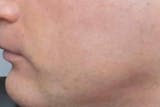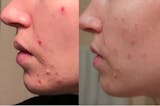Janus Kinase inhibitors (JAK inhibitors) offer temporary relief for the symptoms associated with acute flares, but do not repair the skin barrier or block triggers.
JAK inhibitors are most effective for patients with an overactive immune system.
Eczema is a chronic skin condition characterized by periodic acute flares, marked by red, itchy, and inflamed skin. The severity and duration of an acute eczema flare are influenced by three main factors:
For eczema sufferers, managing the symptoms of acute flares can feel like a constant battle. In the ceaseless quest for more effective solutions, scientific and medical research has led us to Janus Kinase inhibitors, commonly known as JAK inhibitors. JAK inhibitors offer various ways to address the symptoms of an acute flare.
JAK inhibitors do not eliminate triggers nor do they directly repair the skin barrier and therefore are effective only during acute flares for the temporary management of symptoms related to inflammation.
In this blog post, we will discuss JAK inhibitors, how they work, their potential benefits and challenges, and whether they might be a suitable treatment option for you.
JUMP TO SECTION:
What Exactly are JAK Inhibitors?
To understand what a JAK inhibitor is and how it works, it is important to first understand a little bit about the role of Janus Kinase (JAK) proteins in our bodies.
JAKs are a family of enzymes that play a crucial role in the signaling process for the body's immune response. They activate certain types of immune cells and inflammatory processes.
Some atopic dermatitis sufferers may have a genetic mutation which causes the body to “overreact” during a flare. A JAK inhibitor, therefore, is a type of drug designed to impede these enzymes, effectively dampening the immune response in a way where the immune system is not able to property balance itself during a flare.
JAK inhibitors are classified into types based on which JAK enzymes they inhibit. One type that has shown promise in the treatment of eczema flares in certain people is the JAK1 inhibitor. These specifically target and inhibit the activity of JAK1, an enzyme that plays a vital role in the immune response and inflammation pathways.
JAK inhibitors, including JAK1 inhibitors, represent a unique and targeted approach to treating eczema. By focusing on a key player in the immune response and inflammation, these drugs offer a potential new way to control eczema symptoms more effectively for the right patients.
Examples of JAK inhibitor medications include baricitinib, opzelura, ruxolitinib, tofacitinib, and momelotinib. Approved JAK inhibitors in the United States include abrocitinib (Cibinqo), upadacitinib (Rinvoq), and ruxolitinib (Opzelura). Other JAK inhibitors, such as baricitinib (approved in Europe as Olumiant), tofacitinib, gusacitinib, and momelotinib, are at different stages of development.
How Do They Work?
To understand how JAK inhibitors work, we need to look at the role of cytokines in our immune system. Think of cytokines as messengers that help cells communicate and orchestrate the immune response, as discussed in understanding immune control for eczema.
When these messengers bind to receptors on target cells, they trigger the JAK-STAT pathway, a signaling system that regulates gene expression and helps the cell take action.(YAM 2004)
In certain eczema sufferers, an imbalance in Th2 cells leads to an overproduction of pro-inflammatory cytokines. These cytokines are responsible for many of the symptoms associated with eczema, such as inflammation, itching, and skin barrier dysfunction.
JAK inhibitors work by blocking cytokines from binding to the Janus kinase receptors, thus reducing inflammation and improving eczema symptoms.(TRA 2021)
How Do You Use JAK Inhibitors?
JAK inhibitors come in oral and topical forms, allowing for different methods of application. Depending on the specific JAK inhibitor used, it may be taken orally once or twice a day.(TRA 2021) Topical JAK inhibitors can be applied directly to affected skin areas, often in combination with topical steroids for improved efficacy without compromising the safety profile.(SED 2022)(REI 2020)
Advantages of JAK Inhibitors
JAK inhibitors offer several advantages, including their non-steroidal nature, significant improvement in the area and severity of eczema coverage, rapid itch relief, and overall enhancements in quality of life.
Studies have shown that abrocitinib and upadacitinib can be particularly effective in achieving rapid symptom relief for moderate to severe eczema flares, even outperforming Dupilumab in some metrics.(SED 2022)(TRA 2021) See monoclonal antibodies for more on Dupilumab.
Topical JAK inhibitors, such as delgocitinib, have also shown promising results, with significant reductions in eczema flare severity and itchiness observed within hours of application, no systemic side effects and overall moderate efficacy.(TRA 2021)(HOS 2018)
The Challenges and Risks of Using JAK Inhibitors for Eczema
While JAK inhibitors hold promise, they also have some limitations. The FDA has approved the medication with a ‘black box warning’, highlighting there is a high uncertainty about the potential risks of using these medications. Additional limitations include cost, long-term effects, and limited real-world knowledge of their safety and efficacy.
Some common, less serious side effects of JAK inhibitors include nausea, indigestion, diarrhea, and headaches. As an immunosuppressant, there is a higher risk of infections, including in the upper respiratory tract.(TRA 2021) However, the black box warning indicates that JAK inhibitors may increase the risk of infection, cancer, cardiovascular disease, heart attack, stroke, and blood clots. Moreover, they can trigger a drop in platelet, red blood cell, and white blood cell counts.(KEY 2022)
JAK inhibitors may also cause higher cholesterol levels, but more significant side effects can be screened for by identifying risk factors beforehand.(SAM 2023)
Ultimately, it is important to understand that while JAK inhibitors can help manage symptoms during an acute flare, they are best used for people with an overactive immune system, and they are not a long-term cure for eczema. Their primary role is to control inflammation and provide symptomatic relief.
A weakened skin barrier, or an excess of triggers in the environment, are critical concerns that need to be addressed in tandem to any symptom relief for long-term management of eczema.
Are JAK Inhibitors Right For Me?
JAK inhibitors represent a promising advancement in eczema treatment, but it's essential to consult with a medical professional before considering them as an option; see the doctors page for more tips on how to approach this. Although these medications have shown potential in clinical trials, more information and research are needed to fully understand their long-term implications.
JAK inhibitors offer a new treatment avenue for eczema sufferers, particularly those with an overactive immune system in the area where JAK inhibitors function. However, they are not a cure. Long-term management should include the identification and elimination of triggers and a strengthening of the skin barrier.
For more medical treatment options, see the pages for immunosuppressants, phototherapy, monoclonal antibodies, and TC Inhibitors.
Seek proper medical advice to determine if JAK inhibitors are the right choice for you.
Share your experiences with us! Tell us what has and hasn’t worked for you. What did we miss in this article that you've found personally impactful? Your insights can help others better understand and manage their eczema.



